Time for lunch...published at 13:32 GMT 8 February 2018
That was a captivating, fast-paced session and Mr Hood will have a few more questions to answer after the lunch break.
Join us again from 14:00.
Renewable Heat Incentive Inquiry examining botched energy scheme
heating industry businessmen face questions on promoting initiative
Inquiry set up after public concern over scheme's huge projected overspend
Retired Court of Appeal judge Sir Patrick Coghlin chairing inquiry at Stormont
Public evidence sessions expected to last until well into 2018
Robin Sheeran and Iain McDowell
That was a captivating, fast-paced session and Mr Hood will have a few more questions to answer after the lunch break.
Join us again from 14:00.
The problem with the RHI scheme was that DETI "turned the bath tap on and left it running", says Mr Hood.
The department didn't start to turn the tap off as happened with the similar scheme in Great Britain, in which the subsidy was reduced, he adds.
If the department had reduced the 5.9p subsidy to 4p or 3p "that would have had the same effect".
 Image source, Getty
Image source, GettyHe also criticises the on-site checks carried out by Ofgem, the scheme's administrator, noting that when inspectors visited one of his sites with eight heating systems on the scheme only one installation was checked.
"If they were sensible they would have walked and done eight audits in one morning instead of only one," he says.
Mr Scoffield asks Mr Hood whether he thinks DETI officials knew that the RHI scheme's subsidy was higher than the fuel cost for biomass boilers.
"I think they knew it but they had to incentivise the people to take it up," he says, explaining that the department had to ensure it met a target of producing 10% of Northern Ireland's heat through renewable sources by 2020.
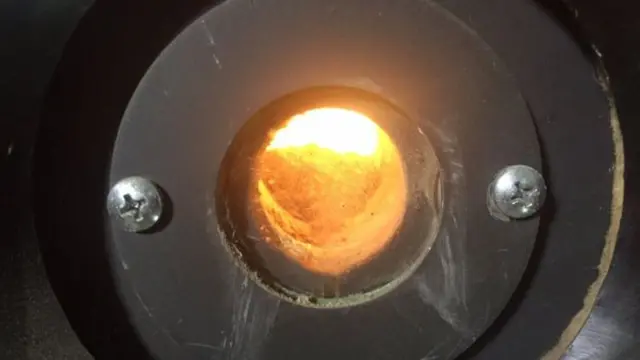 Image source, BC
Image source, BCHe points out that in the early months of the scheme the department was sending money that was set aside for the scheme back to Westminster "because they weren't spending it all".
"If they had incentivised people all that much that this was going to be a goldmine everybody would have been jumping in immediately," he adds.
"So, they had to set a tariff that was attractive."
There was a "conspiracy of silence" in the renewable heat industry about how lucrative the RHI scheme was, Stormont's Department for the Economy - formerly DETI - has told the inquiry.
Mr Scoffield says it has named Mr Hood's company as one of those that quickly saw the fundamental flaw - that the subsidy was higher than the cost of fuel - but didn't draw the that to department's attention.
 Image source, Getty Images
Image source, Getty ImagesIt also says it would have been "disadvantageous for any of those benefitting from the... exploitation or... abuse of the scheme to have alerted the department".
Mr Hood says he's not aware of anyone trying to keep the profitability of the scheme quiet from DETI.
"If they don't find other people to blame then all the blame's going to land on the officials that got it wrong - they want to spread the net out and spread the blame to everybody as much as they can."
Describing the RHI scheme's profitability as "fantastically generous", Mr Scoffield queries whether it ever occurred to Mr Hood that DETI had got its sums wrong.
The businessman denies that he or others within the renewable heating industry knew DETI had made a mistake but thought it shouldn't be drawn to the department's attention.
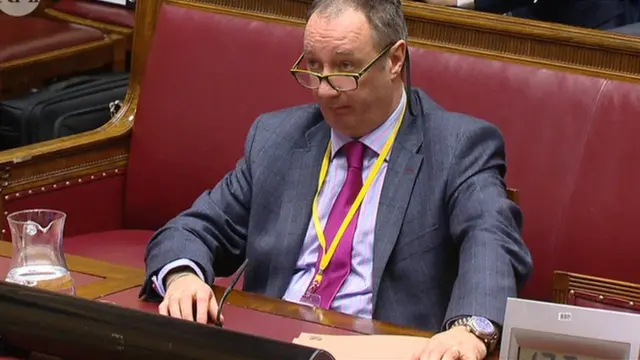 Image source, RHI Inquiry
Image source, RHI InquiryHe says that "as far as we were aware they had brought in independent consultants and... every man and his dog had looked at it... and done their due diligence".
"Who were we, as a mere company, to question the government?"
In one of its earliest promotional leaflets, BS Holdings explicitly outlined that the subsidy on offer through the RHI scheme was "greater than the fuel cost" for biomass boilers.
It said the incentive was 5.9p per kWh of heat generated set against a fuel cost of 3.9p.
 Image source, Getty Images
Image source, Getty ImagesMr Scoffield says that is "one of the few places" in the evidence the inquiry has seen that "it's just set out as clearly as that".
It went on to say there there was potential for a return of 157% for claimants, but some factors could reduce that to 125%.
Mr Hood saw the possibility of "abuse" of the RHI scheme but says the customers he was dealing with were "reputable firms" and he was satisfied that they would operate within the spirit of the scheme.
He says there was an opportunity provided in the regulations for unannounced inspections of boiler installations.

One of his installations was inspected and as far as he was aware "they were sending Ofgem (the scheme's administrator) representatives over from England and doing their processes".
"As we know now it was maybe only three or four installations [that were checked], which was poor," he adds.
BS Holdings "were the trailblazers" in realising how lucrative the RHI scheme could be, says Mr Hood.
No other firm was asking the questions of DETI or getting the assurances from the department that his company was, he adds.
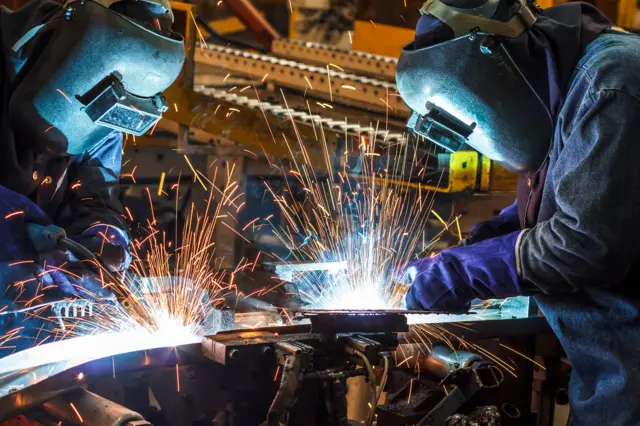 Image source, Getty Images
Image source, Getty Images"That led me to believe that we were ahead of the game."
But competitors "twigged it on fairly quickly", especially those who promoted the scheme to poultry businesses, which his firm didn't engage with.
He says that some firms that had specialised in fossil fuel heating systems quickly diversified into producing biomass boilers when they saw the initiative's potential for them to generate sales.
In another promotional paper produced by BS Holdings, it was outlined that a claimant would get more money the more they used their RHI scheme boiler.
Running a system around the clock throughout the year would earn £51,000 in subsidies.
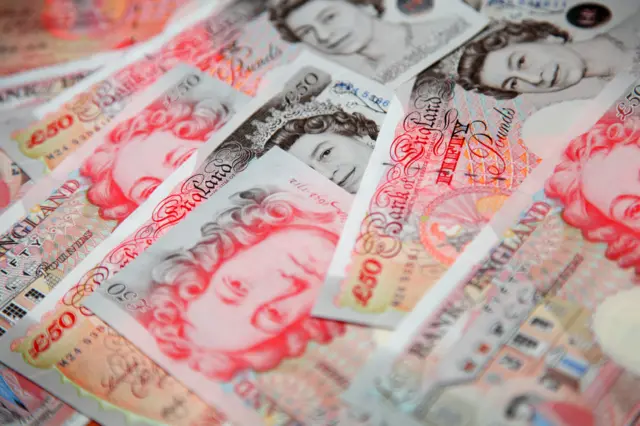 Image source, Getty Images
Image source, Getty ImagesTaking the £34,500 cost of the fuel off that, users were told they could pocket £16,500 profit on top of the savings they could make from switching from oil to the cheaper fuel of wood pellets
Asked if anyone at DETI ever saw that document, Mr Hood says he doesn't know but adds: "It's not hard to do the maths."
Using the slogan "20 years of free heat", BS Holdings began an advertising campaign in September 2013 to get people to buy biomass boilers through the RHI scheme.
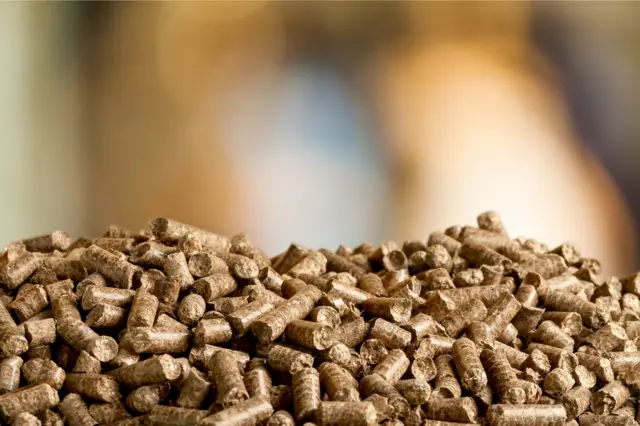 Image source, Getty Images
Image source, Getty ImagesOne tweet that the company posted in 2015 said: "Businesses throughout Northern Ireland are missing out on getting paid for generating heat."
Mr Hood says the campaign was a sustained one and the firm even had vehicles branded with the eye-catching slogan.
Mr Hood raises a couple of interesting points about additional tax advantages for those on the RHI scheme.
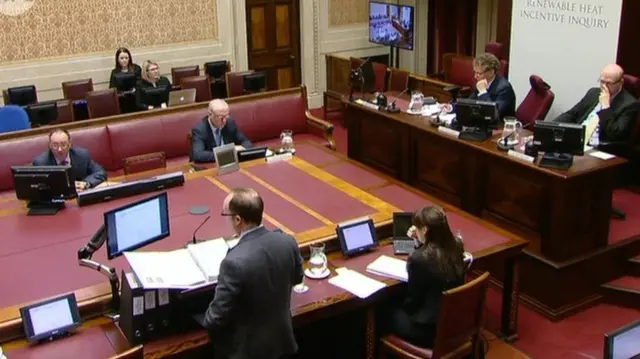 Image source, RHI Inquiry
Image source, RHI InquiryHe says that large, plc-type companies could offset their carbon footprint tax when they adopted renewable fuel.
The businessman says there is also an Enhanced Capital Allowance, external tax break for fitting energy-saving equipment.
BS Holdings produced a leaflet that outlined the RHI scheme's benefits in order to "generate interest, generate sales" shortly after the initiative opened.
It detailed a scenario in which a scheme claimant would collect £1,475 in a year if they spent £1,000 on biomass fuel.
 Image source, Getty Images
Image source, Getty ImagesHe says he worked out the benefits on offer "within a few days" of the scheme being introduced.
That leaflet was sent to the then finance minister Mr Wilson.
BS Holdings - one of Mr Hood's firms - wrote twice to the then finance minister Sammy Wilson in December 2012, asking for a meeting to discuss how biomass boilers on the RHI scheme could be used in public buildings.
It suggested that those buildings, "and in particular all our school buildings", could aim to have no heating fuel costs.
 Image source, Press Eye
Image source, Press EyeIt also claimed that doing so would be making "best use of taxpayers' money".
But there was to be no meeting with Mr Wilson, who has told the inquiry the he didn't see the emails.
They were sent to his Northern Ireland Assembly email address, which he claims he didn't use.
Many people who Mr Hood marketed the RHI scheme to believed it was too good to be true, he says.
"That's the majority of what they were saying: 'The government doesn't pay you to heat buildings - why would they be doing this?'" he tells the inquiry.
But he was able to show them an "assurance" from DETI that confirmed that was indeed the case, even if the department didn't realise it.

In the document, DETI official Peter Hutchinson said the scheme subsidies "will be paid for 20 years" and the would increase or decrease with the retail price index.
But given that the Department for the Economy - formerly DETI - cut the tariffs on offer last year after the scale of the scheme's overspend emerged, Mr Hood says that statement now "isn't worth the paper it's written on".
That was the subject of a legal challenge by RHI claimants, which they lost, but they intend to appeal the court decision.
Mr Hood says that he did not think there was any problem with the element of financial return from the RHI scheme.
"That was the marketing ploy," he says.
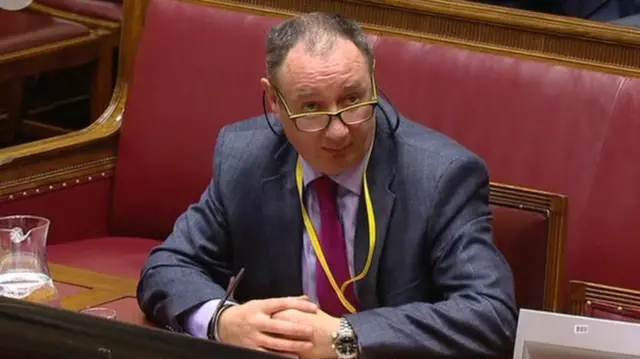 Image source, RHI Inquiry
Image source, RHI InquiryThe businessman says that installing a new oil boiler might cost a firm £5,000, but putting in a 99kW biomass boiler with the same output would cost £50,000.
"Businesses will not invest that kind of difference in money just because they love carbon savings or they want to save the planet," he adds.
"They just won't do it - it has to be a commercial venture; most of our clients wanted to see at least a 15% to 20% return."
Sheridan & Hood met DETI energy officials to talk about the RHI scheme but Mr Hood says he never discussed with them the potential to generate profit from the initiative that he had identified.
 Image source, Getty Images
Image source, Getty Images"That wouldn't have been on our radar," he says, adding that he assumed the civil servants "must've done their due diligence".
"We just applied the rules that they had set."
Mr Hood says his team felt they were facing a degree of criticism from the Department of Justice for their proposal for the Desertcreat college, which the department viewed as "illegitimate".
They contacted DETI for advice about the eligibility of multiple installations on a single site.
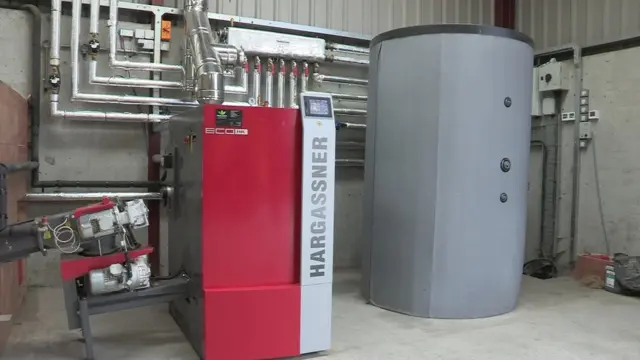
DETI replied, saying that in order to qualify for the RHI scheme subsidy the installations must:
Mr Hood's proposal for the Desertcreat college was knocked back more than once, prompting him to write to the justice minister again.
In the letter, he said it was apparent that there was "an unwillingness to accept improvements" to the project from both a financial and energy efficiency perspective.
 Image source, Getty Images
Image source, Getty ImagesHe reiterated that the plan that was in place for the college's heating system was "outside the scope of the RHI" but his proposal could fall within it.
Mr Hood has also outlined to the inquiry that his firm developed a similar heating system set-up to the one he was suggesting for Desertcreat for the major car dealership Charles Hurst.
After being told of Sheridan & Hood's proposal for the Desertcreat college, the team working on the project questioned whether it would actually be allowed under the technical rules of the RHI scheme.
They also raised a question about whether it would be "appropriate for a government-funded facility to exploit possible loopholes" in the scheme.
They determined that installing smaller boilers instead of a single large unit "could be interpreted as a deliberate attempt to circumvent" the intent of initiative.
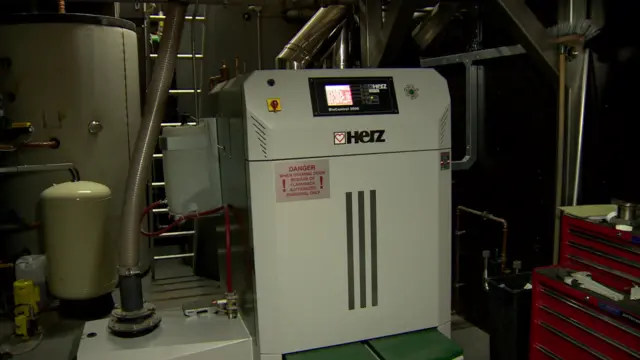
"We're not certain that this is something the Northern Ireland government would want to pursue," they added.
Asked what his reaction was when he saw that response, Mr Hood says he felt "they didn't know what they were talking about".
He contacted DETI's energy team that was working directly on the scheme, and it confirmed that what Sheridan & Hood was proposing would be eligible under the rules.
Mr Scoffield takes Mr Hood back to the inquiry's evidence session with the former Northern Ireland Assembly Enterprise Committee chair Patsy McGlone on 10 January.
He says Mr Hood "took issue" with what the counsel said about Sheridan & Hood's letter to the justice minister in the course of that hearing.
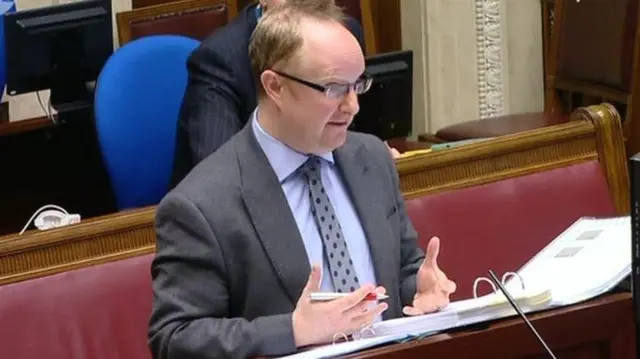 Image source, RHI Inquiry
Image source, RHI InquiryMr Scoffield had said the letter was "a very early indication that some in the market realised how generous the scheme would be, and, without doing anything unlawful, how the scheme could be exploited".
Mr Hood emailed the inquiry's solicitor objecting to Mr Scoffield's language, writing: "My company or employees did not exploit or extol exploitation of anything."
He also said in his email that the Department of Justice had made "outrageous and unfounded claims to attempt to discredit what we had stated in our letter".